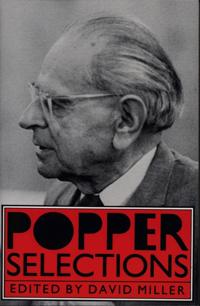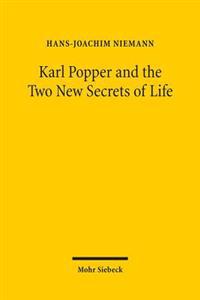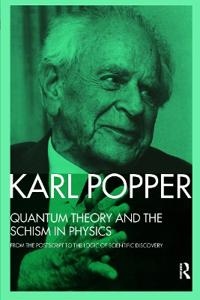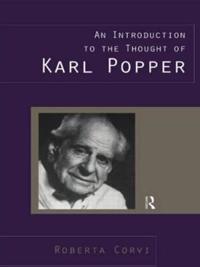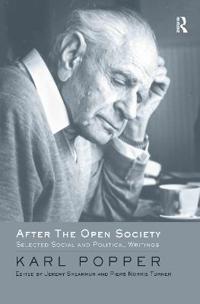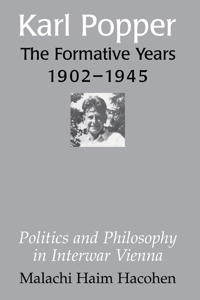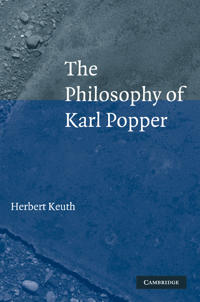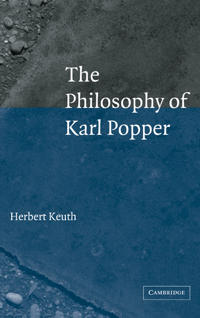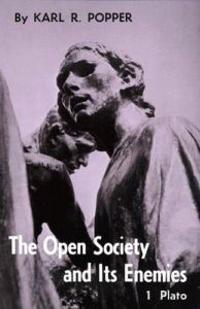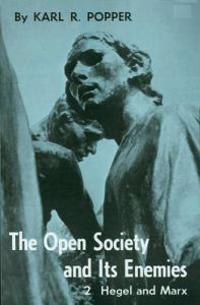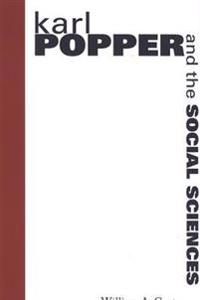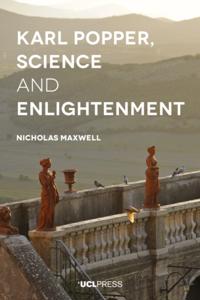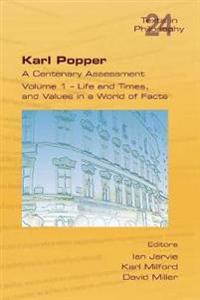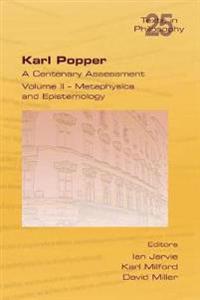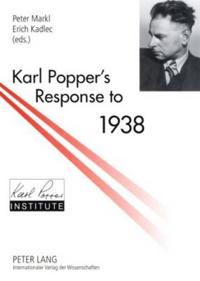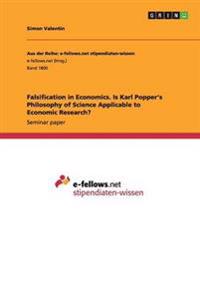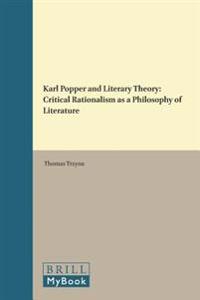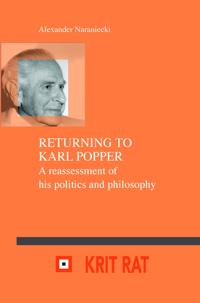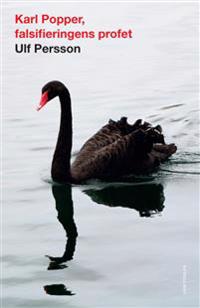Popper Selections (Pocket)
avKarl Raimund Popper, David Miller, Karl Raimund Popper
ISBN: 9780691020310 - UTGIVEN: 1985-02A sampling of the philosophical writings of Karl Popper includes discussions of rationalism, knowledge, human freedom, and the scientific method[...]
Karl Popper and the Two New Secrets of Life: Including Karl Popper's Medawar Lecture 1986 and Three Related Texts (Häftad)
avHans-Joachim Niemann
ISBN: 9783161532078 - UTGIVEN: 2014-07Karl Popper's lecture A New Interpretation of Darwinism given at the Royal Society London in 1986 is here printed for the first time in the original. In it, Popper denies the creative power of blind chance and natural selection. Instead of these two Darwinian dogmas he establishes knowledge and acti[...]
Quantum Theory and the Schism in Physics (Häftad)
avSir Karl Popper
ISBN: 9780415091121 - UTGIVEN: 1989-07Quantum Theory and the Schism in Physics is one of the three volumes of Karl Popper's Postscript to the Logic of scientific Discovery. The Postscript is the culmination of Popper's work in the philosophy of physics and a new famous attack on subjectivist approaches to philosophy of science. Quantum [...]
An Introduction to the Thought of Karl Popper (Häftad)
avRoberta Corvi
ISBN: 9780415129572 - UTGIVEN: 199610This is a comprehensive introduction to the philosophical and political thought of Karl Popper, now available in English. It is divided into three parts; the first part provides a biography of Popper; the second part looks at his works and recurrent themes, and the third part assesses his critics. I[...]
After the Open Society (Inbunden)
avKarl Popper, Jeremy (EDT) Shearmur, Piers Norris (EDT) Turner
ISBN: 9780415309080 - UTGIVEN: 2008-07In this long-awaited volume, Jeremy Shearmur and Piers Norris Turner bring to light Popper's most important unpublished and uncollected writings from the time of The Open Society until his death in 1994. After The Open Society: Selected Social and Political Writings reveals the development of Popper[...]
World of Parmenides, The: Essays on the Presocratic Enlightenment (Övrig)
avSir Karl Popper
ISBN: 9780415518796 - UTGIVEN: 2012-04-26With a new foreword by Scott Austin 'I hope that these essays may illustrate the thesis that all history is or should be the history of problem situations, and that in following this principle we may further our understanding of the Presocratics and other thinkers of the past. The essays also try to[...]
Karl Popper--The Formative Years, 1902-1945
ISBN: 9780521470537 - UTGIVEN: 2000-10Karl Popper (1902?1994) is one of this century?s most influential philosophers, but his life in fin-de siècle and interwar Vienna, and his exile in New Zealand during World War II, have so far remained shrouded in mystery. This intellectual biography recovers the legacy of the young Popper; the pro[...]
The Philosophy of Karl Popper
ISBN: 9780521548304 - UTGIVEN: 2004-12Karl Popper is one of the greatest and most influential philosophers of the twentieth century. Perhaps his greatest book, The Logic of Scientific Discovery, sets out his epistemology of critical rationalism, while his most famous book, The Open Society and Its Enemies, applies the principles of crit[...]
The Philosophy of Karl Popper (Inbunden)
avHerbert Keuth
ISBN: 9780521839464 - UTGIVEN: 200412Karl Popper is one of the greatest and most influential philosophers of the twentieth century. Perhaps his greatest book, The Logic of Scientific Discovery, sets out his epistemology of critical rationalism, while his most famous book, The Open Society and Its Enemies, applies the principles of crit[...]
Karl Popper - The Formative Years, 1902-1945 (Häftad)
avMalachi Haim Hacohen
ISBN: 9780521890557 - UTGIVEN: 2002-03Karl Popper (1902?1994) is one of this century?s most influential philosophers, but his life in fin-de siècle and interwar Vienna, and his exile in New Zealand during World War II, have so far remained shrouded in mystery. This intellectual biography recovers the legacy of the young Popper; the pro[...]
Open Society and Its Enemies, Volume 1: The Spell of Plato (Häftad)
avKarl Popper
ISBN: 9780691019680 - UTGIVEN: 197102Popper was born in 1902 to a Viennese family of Jewish origin. He taught in Austria until 1937, when he emigrated to New Zealand in anticipation of the Nazi annexation of Austria the following year, and he settled in England in 1949. Before the annexation, Popper had written mainly about the philoso[...]
Open Society and Its Enemies. Volume 2: The High Tide of Prophecy: Hegel, Marx, and the Aftermath (Häftad)
avKarl Popper
ISBN: 9780691019727 - UTGIVEN: 197102Popper was born in 1902 to a Viennese family of Jewish origin. He taught in Austria until 1937, when he emigrated to New Zealand in anticipation of the Nazi annexation of Austria the following year, and he settled in England in 1949. Before the annexation, Popper had written mainly about the philoso[...]
The Open Society and Its Enemies (Häftad)
avKarl Popper, E. H. Gombrich, Alan Ryan
ISBN: 9780691158136 - UTGIVEN: 2013-04One of the most important books of the twentieth century, Karl Popper's "The Open Society and Its Enemies" is an uncompromising defense of liberal democracy and a powerful attack on the intellectual origins of totalitarianism. Popper was born in 1902 to a Viennese family of Jewish origin. He taught [...]
Karl Popper (Häftad)
ISBN: 9781441185396 - UTGIVEN: 2013-10Karl Popper is best known for his contributions to the philosophy of science and the history of ideas. Elements of Popper's thought were clearly libertarian or conservative in character. His politics, however, were recognisably social democratic. His ideal of an open society was not a free market ut[...]
Karl Popper, Science and Enlightenment
ISBN: 9781787350380 - UTGIVEN: 2017-09Here is an idea that just might save the world. It is that science, properly understood, provides us with the methodological key to the salvation of humanity. A version of this idea can be found in the works of Karl Popper. Famously, Popper argued that science cannot verify theories but can only ref[...]
Karl Popper. a Centenary Assessment. Volume I - Life and Times, and Values in a World of Facts (häftad)
ISBN: 9781848901902 - UTGIVEN: 2016-02Karl Popper. a Centenary Assessment. Volume II - Metaphysics and Epistemology (häftad)
ISBN: 9781848901919 - UTGIVEN: 2016-02Karl Popper's Response to 1938
ISBN: 9783631581346 - UTGIVEN: 2008-08When Karl Popper received the news of the events in Vienna, March 1938, in his New Zealand exile, he decided to start working on two books which became classics in political philosophy - his theory of an open democratic society. The volume deals with the lasting significance of Popper's thoughts and[...]
Falsification in Economics. Is Karl Popper's Philosophy of Science Applicable to Economic Research? (häftad)
ISBN: 9783668209701 - UTGIVEN: 2016-07Karl Popper and Literary Theory: Critical Rationalism as a Philosophy of Literature (häftad)
ISBN: 9789004321625 - UTGIVEN: 2017-01Karl Popper's philosophy of science, with its focus on falsifiability and critical rationalism, provides a firm foundation for a theory of literary interpretation that avoids the pitfalls of many contemporary theories. Building on the work of Popper, John Eccles, Imre Lakatos, Ernst Gombrich, Louise[...]
Karl Popper, falsifieringens profet (Häftad)
avUlf Persson
ISBN: 9789170401176 - UTGIVEN: 2014-01I vår tid är ambitionen att så mycket verksamhet som möjlig skall vila på vetenskaplig grund. Därmed utökas vetenskapens domäner, samtidigt som begreppet som sådant förflackas. Filosofen Karl Poppers syn på vetenskapen är mera subtil. Enligt honom kan vi ingenting veta med säkerhet, ing[...]

